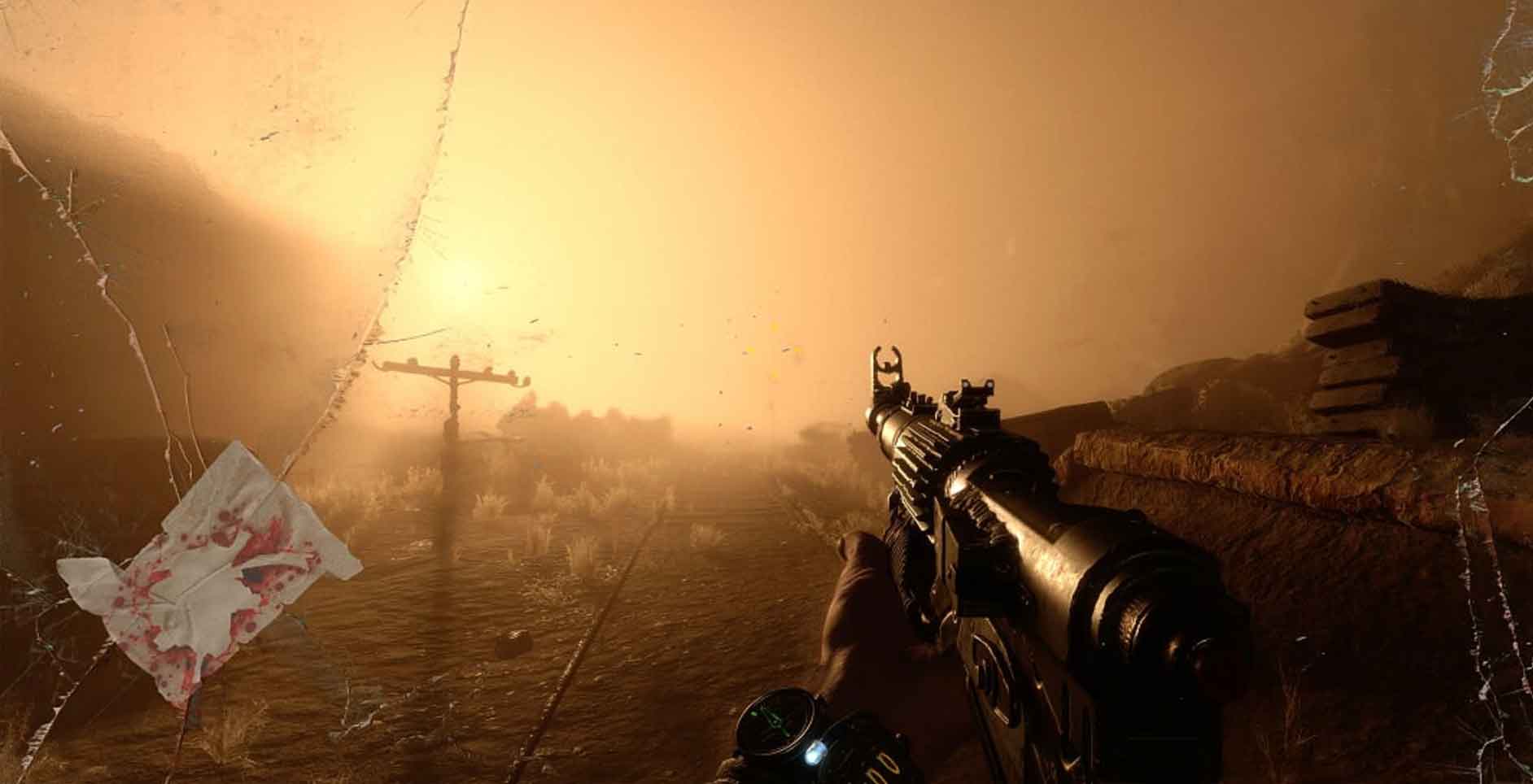Press Start may receive a commission when you buy from links on our site at no extra cost to you.
There’s a lot to write home about when talking about the first two Metro games. Both 2033 and Last Light are profoundly exceptional examples of survival games that succeed at building a believable world in a science-fiction setting while crushing the player under the weight of an incredibly oppressive atmosphere. Exodus does infrequently recapture the magic in a handful of wonderful set pieces, but the game, unfortunately, crumbles under the weight of its own ambition too often during its runtime.
Where the game’s promotional trailer showcased Artyom’s nightmare, Exodus begins with a dream, so to speak. Artyom longs to leave the metro behind in hope of finding a better world out there, which sets the game’s events in motion. The Spartans of Moscow board the Aurora, a steam locomotive, and set off by rail in search of this brave new world, only to be set upon by countless terrors along the way. I won’t elaborate any further on the game’s wider narrative, though I will say Exodus doesn’t seem to unfold with the same impact of the first two. For a series that relies so strongly on unwavering atmosphere, the silent protagonist trope really betrays the mood of Metro, shattering the immersion. Exodus elaborates on the established lore in an unexpected and somewhat disappointing way. Characters intrinsically tied to the lore that I had hoped to see return didn’t, and the ones that did never get the chance to develop because their gums never stop flapping with exposition, which is a terrible shame.
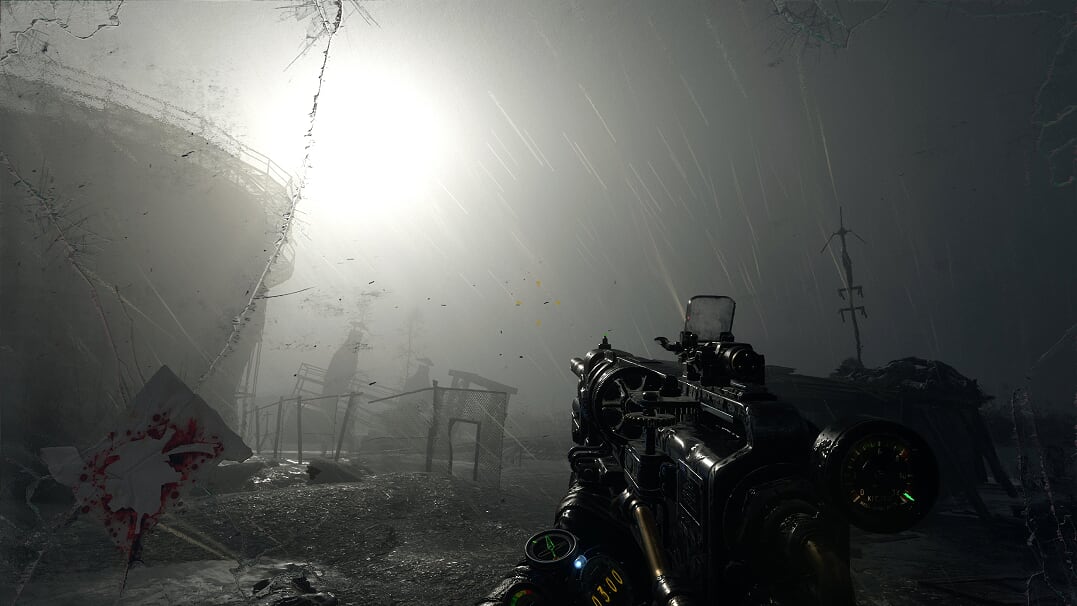
The characters you meet along the way, often tied to the particular level you’re on, are wonderful and help shape the journey, but it’s a journey that feels largely disjointed and poorly paced as a result of the cross-country march. As you rail across Russia, the game opens up under the guise of an ‘open-world’. In reality, the game’s narrative rolls out over the span of a year, with the seasons acting as a kind of act break. Over the span of these acts, Exodus introduces a series of small, self-contained hub overworlds that exist in the vacuum of that particular chapter. Outside of the few story missions that force the plot along, these hubs don’t offer a heap of value. The minimal playspaces have clear borders and within those borders are a handful of optional missions that don’t do much to aid the story. They do result in a little bit of prattle with the game’s supporting cast, but that’s hardly worth the detour.
Another small area of disappointment is the treatment of Anna, wife to our silent hero, in Exodus. Her fall from hard-nosed sniper to damsel-in-distress, as she is for the latter half of the game, is particularly disheartening. Her presence is barely felt as she exists largely as the driving force for Artyom’s actions in the endgame. I do hope if they continue to expand upon this universe that she might reclaim some self-reliance and go back to being a badass.
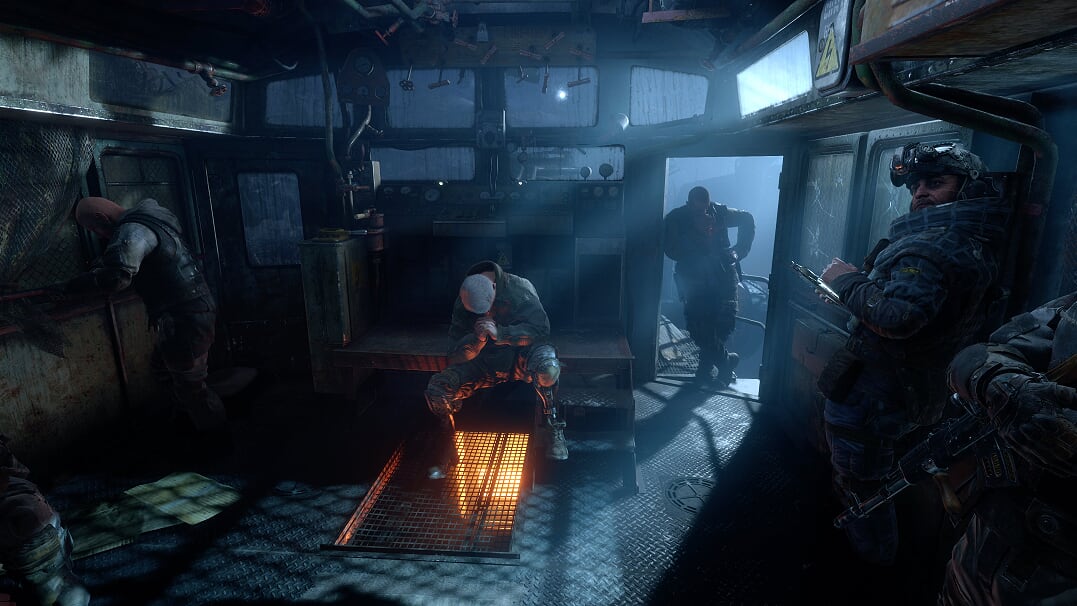
While these open areas exist, they’re easily the most laborious parts of the game. There’s a real Fallout vibe to roaming these open areas, though it lacks the pay off that Bethesda tends to hide in every nook and cranny of their worlds. It’s when Exodus sends you back into the linear, claustrophobic tunnels that it recaptures that former glory and actually offers a bit of fun. Stomping through tight, oppressive and powerless substations with barely any ammo and a dim flashlight is far more pulse-pounding than driving a ramshackle bus through miles of an empty desert while a sandstorm rages.
It’s when you’re digging down into the cobwebs that Metro’s strengths can really shine through. All of the realistic touches that the series has always worn proudly return and make up one of the more punishing and stressful shooters on the market. Exodus is a title where nothing gets handed to you as you scavenge and scrap for everything, diving frequently into Artyom’s rucksack to craft the things you’ll need to survive the arid Russian landscape. The realism in Exodus is so harsh that you’re even forced to clean your weapons to keep them from jamming mid-firefight, it can lead to many heart-in-throat moments. All of the weapons kick like mules and you can feel the weight of each one, making Metro one of the more satisfying games in terms of gun feel. Plus, I had a lot of fun toying around with the different combinations of attachments for Metro’s handful of weapons. This customisation is essential for navigating hazards that are everchanging in a dystopia like Metro’s Russia. Of course, there are examples of the crushing realism feeling like too much. For a game that sees you constantly trying to defend yourself without ammo, Artyom’s melee is frustratingly ineffectual and I had many a desperate escape foiled by weak knees and an even weaker constitution as fall damage is taken to new heights in Exodus. And by new heights I mean about three metres, I’m now convinced Artyom would perish falling out of an armchair.
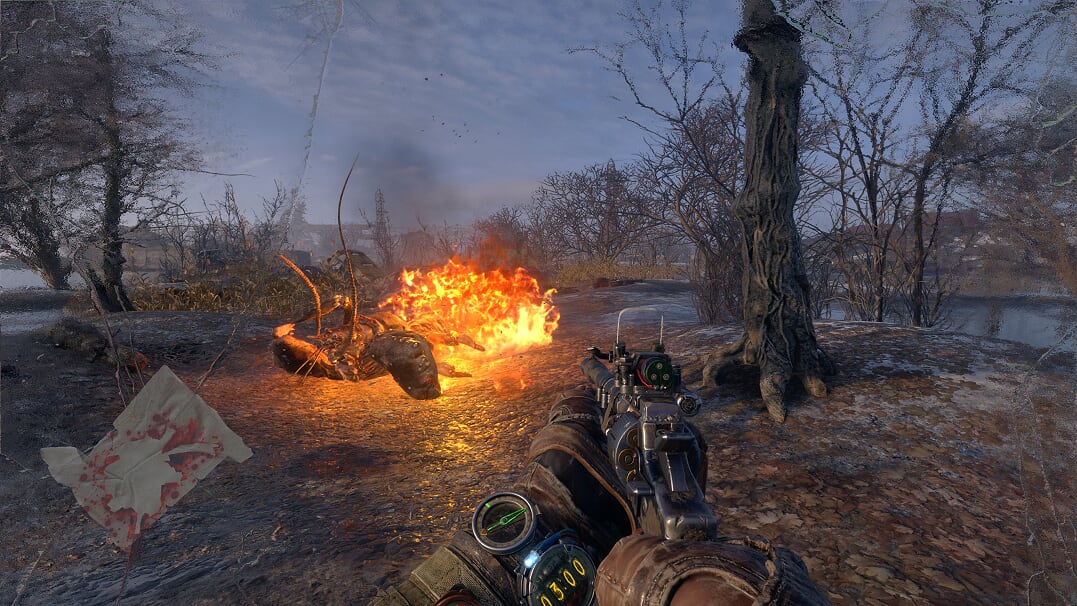
Metro Exodus is strikingly beautiful a lot of the time. The environmental artists deserve a serious raise because, despite serving up a number of different locales beyond the regular nuclear winter, Exodus never disappoints. The draw distance is sumptuous and the lighting is phenomenal, though it’s a game that looks best when it’s bleak. When the sun shows up, the textures can at times appear a little murky, which might make you welcome the rendering issues that can occur after re-loads, but this is a minor gripe. Character models have never been a strength of 4A Games and this effort is no exception, though they’ve got to the next level with the monstrous distortions that hound you in the wild. Some of it is actually nightmare fuel.
Unfortunately, the texture pops are the least of the game’s performance issues. Clipping issues will feel like second nature by the time the credits roll, though it’s the hard locks in Exodus that are the most frustrating. It’s hard to know what causes these exactly as I couldn’t replicate any of them when they did happen, but throughout the course of Exodus, I had the game lock up a handful of times. I even managed to break the map boundaries on one occasion trying to jump to a platform, this left me idle underwater but unable to die or move. This I was able to replicate, and I lost about ten minutes of progress each time. To accompany these performance hang-ups, Exodus has its share of audio issues. So often I wouldn’t be able to hear characters mere feet away from me as they’d be drowned out by environmental noises. I was wearing headphones throughout and the game seemed very intent on panning sounds into each can respective to where Artyom was looking, sadly it was just extremely sensitive and I struggled to find a sweet spot. Fortunately, not a lot of value was lost as the dialogue that crops up during Exodus is pretty much drivel, it’s comfortably the worst script in the series.
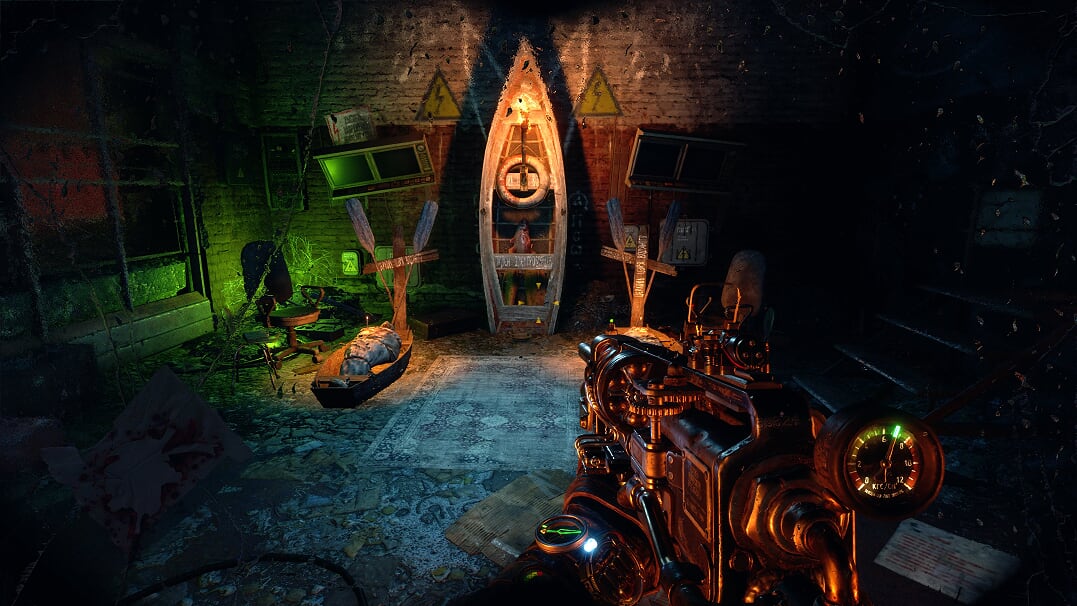
It fills me with sorrow to say that Metro Exodus didn’t quite live up to my hopes. Its so-called open world is a falsehood of sorts and only serves to hamstring the game’s otherwise well-paced, linear chapters. I don’t know if the performance issues are signs of a developer under duress, or perhaps their ambition trumped their ability, but this isn’t the 4A I’m used to.


